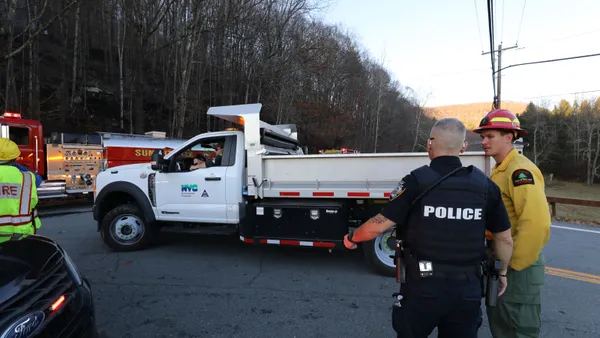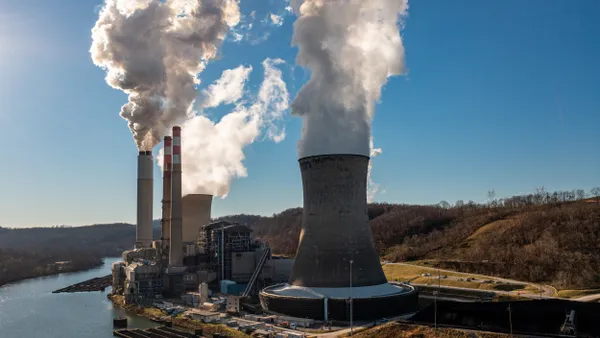Dive Brief:
- Inaction on climate change could cost the world’s top companies $1.2 trillion over the next 15 years, according to a new report from the United Nations (UN) Environment Finance Initiative project reflecting the input of 20 institutional investors from 11 countries.
- The report calls on corporations and financial institutions to develop long-range assessments of climate change-associated risks and opportunities. Large portfolios mean many institutional investors "face exposure to risk across sectors, geographies and financial instruments, while at the same time financing the development of the real economy."
- Government-driven policies to fight climate change pose risks for the utility, transportation, agriculture and mining sectors. The report recommends that investments in low-carbon technology opportunities can offset the potential losses from those sectors, as well as the high cost of complying with greenhouse gas reduction policies.
Dive Insight:
The Paris agreement set a goal of keeping the increase in global temperatures to less than 2 degrees Celsius above pre-industrial levels, a goal that requires significant change from both the public and private sectors. Investors face significant risks as governments adopt climate change plans, which would impose higher fees and reduce the market size for traditional industrial giants in favor of clean energy investments. That’s why long-range plans and diversification that can account for policy shifts are important, the new report finds. The U.N. has also tried to bring financial institutions on board with climate change planning, including through a year-long finance initiative led by former New York City Mayor Michael Bloomberg.
In a statement, Mark Carney, governor of the Bank of England, said that the "catastrophic impacts of climate change will be felt beyond the traditional horizons of most banks, investors and financial policymakers, who do not have the direct incentives to fix them," which he deemed the "Tragedy of the Horizon." Policy adoption, risk management strategies and better returns for low-carbon technology, he said, meant "for the first time, a path to break this Tragedy is becoming possible."
Still, the report makes clear that inaction is just as costly, as extreme weather and rising heat could upend agriculture and construction markets especially, meaning investors will have to adapt either way.
Governments could mitigate some of the investor risk through predictable strategies like consistent carbon taxes or cap-and-trade programs. Many cities have set their own long-range clean energy goals, which also signal to investors where the energy market is going. Some governments have even taken a hold of their own investments; New York City, Denver and San Francisco are among those who have divested or are divesting from fossil fuel companies.










